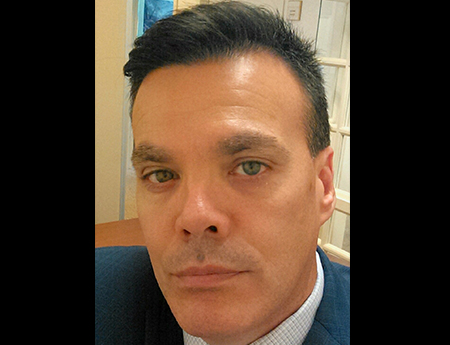Guest Blog: Local TV Broadcasters Deliver Front-Line Reporting in Emergencies

The smarter way to stay on top of broadcasting and cable industry. Sign up below
You are now subscribed
Your newsletter sign-up was successful
Moore, Oklahoma. Joplin, Missouri. New Orleans, Louisiana. The names of these cities are crystallized in the minds of Americans as the sites of catastrophic destruction and loss of life due to natural disasters. However, in the dark cloud that hangs over the memory of these incidents, there is a silver lining: Many lives were saved because of the diligence, service, and sacrifice of local news stations in the face of dire circumstances.
When Americans seek breaking news developments and real-time updates during times of crisis and emergency, they instinctively turn to their local broadcasters. Each spring and summer, deadly tornadoes and tropical storms threaten to ravage large portions of the country. To keep Americans informed and out of harm’s way in these situations, local broadcasters stand at the ready to deliver life-saving emergency alerts and warnings to the nation’s TV viewers and radio listeners. These broadcasters often go wall-to-wall with lifeline reporting, while eliminating all advertising.
Across the country, local broadcasters remain dutifully faithful to their role as first informers in the communities they serve. They are a first line of defense for families, friends and neighbors when potentially life-changing weather events threaten their communities. At a moment’s notice, local TV broadcasters quite literally put themselves in the “eye of the storm” in order to keep their communities informed with up-to-the minute news and weather coverage. In addition, broadcasters’ invaluable on-the-ground "know-how" and local expertise makes them truly irreplaceable in relating important news to their communities.
An illustrative reminder is the recent one-year anniversary of the devastating EF5 tornado in Moore, Oklahoma, that shredded a 14-mile path of destruction, leaving hundreds of homes destroyed, and severely damaging a hospital and two elementary schools. Lives were lost in Moore that day, but without the skillful work of local broadcast stations this tragic situation could have been significantly worse.
In remarks after the tornado and severe storms, Oklahoma Governor Mary Fallinstated:
“I want to say thank you so very much to the media. The media has done a superb job over the last couple of days of keeping people informed about the current weather conditions, especially our weathermen and those that have been on the ground driving and calling and tracking the storm itself.”
The onset of this year’s hurricane season signals a new challenge as the federal government readies states along the Atlantic seaboard and Gulf coast – from Maine to Texas – for potential storms. The National Oceanic and Atmospheric Administration (NOAA) predicts a 70% likelihood of eight to 13 named storms, three to six of which could become hurricanes – including up to two major hurricanes. Without doubt, residents and businesses can rely on their local weather forecaster to keep them in-the-know regarding possible storms that could endanger their communities.
The smarter way to stay on top of broadcasting and cable industry. Sign up below
Today, millions of Americans rely on cable TV’s lifeline “basic service tier” to access broadcast channels for their news, weather updates and emergency alerts. Currently, pay-TV providers are required to place broadcast networks on this basic tier, so that all subscribers – regardless of how much they pay for a particular package – will have access to their local news. However, pay-TV wants to strip this requirement in the reauthorization of a satellite TV bill – a move that would force America’s cable TV subscribers into paying higher prices to access those same broadcast stations on more expensive, premium packages. This may leave some families without cable TV because they simply no longer will be able to afford it.
Since 1934, Congress has made clear that “promoting safety of life and property through the use of wire and radio communication” is a core purpose of the FCC and the nation’s broadcasters. There is a reason that this language appears in the very first section of the Communications Act. Since the advent of radio and television, local broadcasters have delivered life-saving information to radio listeners and TV viewers.
Affordable access to local TV stations on cable TV provides tremendous value to millions of subscribers who cannot afford premium pay-TV programming packages and it ensures that they’ll be able to receive emergency alerts and warnings from their local broadcast TV stations, 24/7.
Given the important role of local TV broadcasters as front-line reporters in emergencies and the reliance of TV viewers on those live emergency updates, alerts and warnings, Congress should do all it can to defend and preserve the lifeline basic service tier on cable TV systems for all Americans.
Robert C. Kenny is the director of public affairs for TVfreedom.org, a coalition of local broadcasters, community advocates, network TV affiliate associations, and other independent organizations; he formerly served as press secretary at the FCC.
